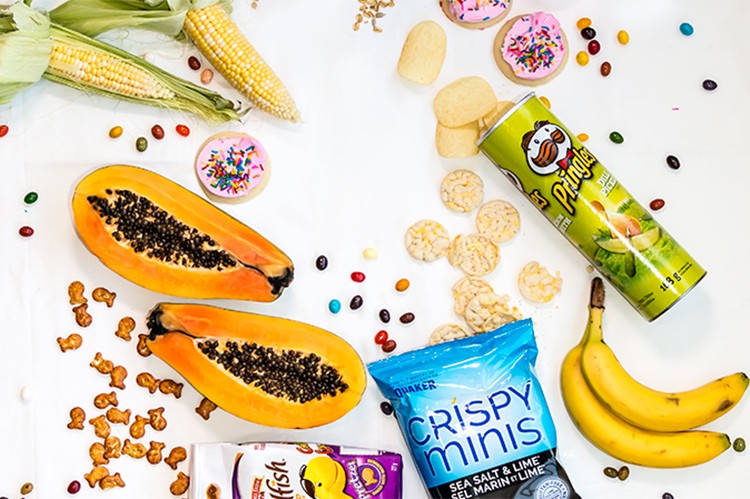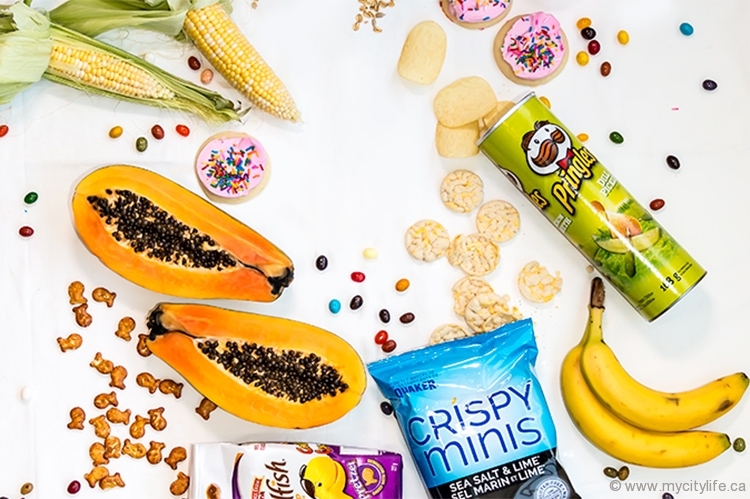Want Some Genetically Modified Fries with That?
We’re often informed of the fat, sugar and nutrient content of our favourite foods. As more genetically modified foods are placed on our grocery store shelves, Canadians are demanding transparency on GM ingredients, too.
Two decades ago, genetically modified food was like that promising new employee with a too-good-to-be-true résumé. But since Canada first started planting this innovation in our gardens and on our grocer’s shelves, consumers have begun to realize that the concept, while exciting, isn’t all it was advertised to be — in fact, it could be doing us more social, economic and environmental harm than good.
For years there’s been a vague understanding that most consumers are uncomfortable with the idea of genetically modified foods, especially as Canada adds more products to its list. Right now, we only produce GM corn, canola, soybean and white sugar beet, but this May Health Canada approved the first GM food animal, Atlantic salmon, and this fall we’re expecting two new experiments to pop up in our shopping baskets: the White Russet potato and the Arctic apple. And with all the drama surrounding biotech seed-producing giant Monsanto Co. this year (its glyphosate pesticide being linked to cancer and questions surrounding the company’s royalty collection model, among other concerns), more red flags are rising.
There’s always been a demand for proper labelling of GM foods, but with these revelations the outcry is gaining volume — yet the government still isn’t listening, and concerned consumers are forced to spend the majority of their time at the grocery store scouring their foods’ nutritional facts to deduce if they may contain genetically modified ingredients.
But this past year, a foot was finally put down — a foot that belongs to the Canadian Biotechnology Action Network (CBAN), a coalition of environmental organizations, international development organizations, grassroots groups and farmers’ associations that come together to demystify the concept of genetically modified organisms. In 2015, CBAN conducted an in-depth investigation into genetically modified foods in Canada, seeking answers for all those questions that the government has left us scratching our heads over.
It’s always been the industry’s big public relations promise that genetically modified foods would feed the world. But the issue, of course, is that hunger is caused by poverty and inequality
– Lucy Sharratt
“It’s been twenty years now since the first genetically modified crops were approved by the Canadian government, and we thought it was high time to actually look at their health impacts, their economic, social and environmental impacts,” says Lucy Sharratt, coordinator of CBAN. “It became increasingly clear through our investigation that the government had not conducted this type of evaluation, and that our investigation of the impacts after twenty years is unique.”
The results show just how many of us are wary of genetically modified foods, revealing that 88 per cent of Canadians want mandatory labelling, 59 per cent are against genetically modifying foods in the first place, and 57 per cent aren’t confident in the government’s safety and regulatory systems for genetically modified foods — among other findings.
Sharratt says that CBAN plans to present these numbers to the Canadian government later this year in hopes of finally triggering some action — or at least forcing them to take the issue seriously. For years, the potential health risks of genetically modified organisms have been mostly ignored by leaders, and very little independent science and few long-term tests have been conducted to find out what those risks might be. So for now, the government can keep advertising that GM foods don’t come with any proven health risks.
One thing they can’t deny, however, is that GM foods pose an indirect health risk via their demand for increased chemical use. Since the introduction of GM crops, herbicide sales have gone way up, increasing by a whopping 130 per cent. Not only is this bad news for our bodies — that’s a lot of chemicals to be ingesting — but it’s also the cause of yet another negative side effect: poorer farmers. Genetically modified seeds and their accompanying chemical treatments are costly, and don’t increase farmer’s yields, as originally advertised. Thus, it’ll also never come through on its promise to solve world hunger.
“It’s always been the industry’s big public relations promise that genetically modified foods would feed the world,” says Sharratt. “But the issue, of course, is that hunger is caused by poverty and inequality. It’s not because there’s not enough food or inadequate production.”
This past spring, there was finally a moment of progress in the States: a bunch of big-name American brands like General Mills, Mars, Campbell and Kellogg’s made the voluntary decision to label their genetically modified products. They’re not exactly doing it out of the goodness of their hearts — Vermont enacted a new law in 2014 demanding that as of July 1, 2016, all GM foods must be labelled, and these industry giants decided it wasn’t worth creating a whole separate label for a single, tiny state — but at least they’re doing it. It’s a start, but Canuck brands have yet to follow suit.
While we wait for that miracle to happen, CBAN suggests concerned consumers check their favourite products for two symbols: Certified Organic and the Non-GMO Project.
“This is why we need labelling, so consumers don’t have to hunt around in the grocery store,” says Sharratt. “Consumers should be able to buy wholesome fruits and vegetables without concerning themselves about genetically modified products.”
71% of Canadians say they are aware of GM foods
88% of Canadians want mandatory labelling of GM foods
6 in 10 (59%) of Canadians oppose genetically modifying crops and animals to produce food, and 1 in 3 (34%) say they support it
48% support a ban on all genetically modified food
6 in 10 (57%) of Canadians are not confident in the government’s safety and regulatory systems for genetically modified food
Quiz results: Surprise! The only product we can confirm is non-GMO is the Certified Organic soy milk. The rest is guesswork. And this is why Canadian consumers are demanding to have GMO foods properly labelled.
PHOTO BY CARLOS ARTURO PINTO















































































No Comment